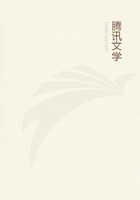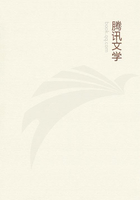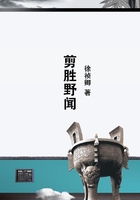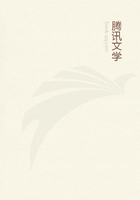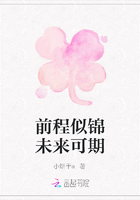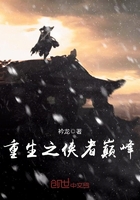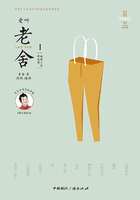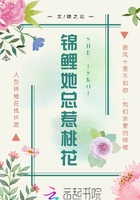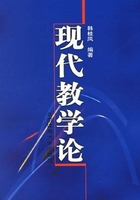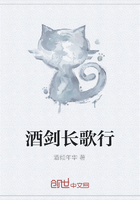Smith went up the stairs four at a time, and when he bumped his head against the ultimate ceiling, Inglewood had an odd sensation that the tall house was much shorter than it used to be.
Arthur Inglewood followed his old friend--or his new friend, for he did not very clearly know which he was. The face looked very like his old schoolfellow's at one second and very unlike at another. And when Inglewood broke through his native politeness so far as to say suddenly, "Is your name Smith?" he received only the unenlightening reply, "Quite right; quite right. Very good. Excellent!" Which appeared to Inglewood, on reflection, rather the speech of a new-born babe accepting a name than of a grown-up man admitting one.
Despite these doubts about identity, the hapless Inglewood watched the other unpack, and stood about his bedroom in all the impotent attitudes of the male friend. Mr. Smith unpacked with the same kind of whirling accuracy with which he climbed a tree--throwing things out of his bag as if they were rubbish, yet managing to distribute quite a regular pattern all round him on the floor.
As he did so he continued to talk in the same somewhat gasping manner (he had come upstairs four steps at a time, but even without this his style of speech was breathless and fragmentary), and his remarks were still a string of more or less significant but often separate pictures.
"Like the day of judgement," he said, throwing a bottle so that it somehow settled, rocking on its right end.
"People say vast universe... infinity and astronomy; not sure... I think things are too close together... packed up; for travelling... stars too close, really... why, the sun's a star, too close to be seen properly; the earth's a star, too close to be seen at all... too many pebbles on the beach; ought all to be put in rings; too many blades of grass to study... feathers on a bird make the brain reel; wait till the big bag is unpacked... may all be put in our right places then."
Here he stopped, literally for breath--throwing a shirt to the other end of the room, and then a bottle of ink so that it fell quite neatly beyond it.
Inglewood looked round on this strange, half-symmetrical disorder with an increasing doubt.
In fact, the more one explored Mr. Smith's holiday luggage, the less one could make anything of it. One peculiarity of it was that almost everything seemed to be there for the wrong reason; what is secondary with every one else was primary with him.
He would wrap up a pot or pan in brown paper; and the unthinking assistant would discover that the pot was valueless or even unnecessary, and that it was the brown paper that was truly precious.
He produced two or three boxes of cigars, and explained with plain and perplexing sincerity that he was no smoker, but that cigar-box wood was by far the best for fretwork.
He also exhibited about six small bottles of wine, white and red, and Inglewood, happening to note a Volnay which he knew to be excellent, supposed at first that the stranger was an epicure in vintages.
He was therefore surprised to find that the next bottle was a vile sham claret from the colonies, which even colonials (to do them justice) do not drink. It was only then that he observed that all six bottles had those bright metallic seals of various tints, and seemed to have been chosen solely because they have the three primary and three secondary colours: red, blue, and yellow; green, violet and orange. There grew upon Inglewood an almost creepy sense of the real childishness of this creature.
For Smith was really, so far as human psychology can be, innocent.
He had the sensualities of innocence: he loved the stickiness of gum, and he cut white wood greedily as if he were cutting a cake.
To this man wine was not a doubtful thing to be defended or denounced; it was a quaintly coloured syrup, such as a child sees in a shop window.
He talked dominantly and rushed the social situation; but he was not asserting himself, like a superman in a modern play.
He was simply forgetting himself, like a little boy at a party.
He had somehow made the giant stride from babyhood to manhood, and missed that crisis in youth when most of us grow old.
As he shunted his big bag, Arthur observed the initials I. S. printed on one side of it, and remembered that Smith had been called Innocent Smith at school, though whether as a formal Christian name or a moral description he could not remember.
He was just about to venture another question, when there was a knock at the door, and the short figure of Mr. Gould offered itself, with the melancholy Moon, standing like his tall crooked shadow, behind him. They had drifted up the stairs after the other two men with the wandering gregariousness of the male.
"Hope there's no intrusion," said the beaming Moses with a glow of good nature, but not the airiest tinge of apology.
"The truth is," said Michael Moon with comparative courtesy, "we thought we might see if they had made you comfortable.
Miss Duke is rather--"
"I know," cried the stranger, looking up radiantly from his bag;
"magnificent, isn't she? Go close to her--hear military music going by, like Joan of Arc."
Inglewood stared and stared at the speaker like one who has just heard a wild fairy tale, which nevertheless contains one small and forgotten fact. For he remembered how he had himself thought of Jeanne d'Arc years ago, when, hardly more than a schoolboy, he had first come to the boarding-house. Long since the pulverizing rationalism of his friend Dr. Warner had crushed such youthful ignorances and disproportionate dreams.
Under the Warnerian scepticism and science of hopeless human types, Inglewood had long come to regard himself as a timid, insufficient, and "weak" type, who would never marry; to regard Diana Duke as a materialistic maidservant; and to regard his first fancy for her as the small, dull farce of a collegian kissing his landlady's daughter.
And yet the phrase about military music moved him queerly, as if he had heard those distant drums.

